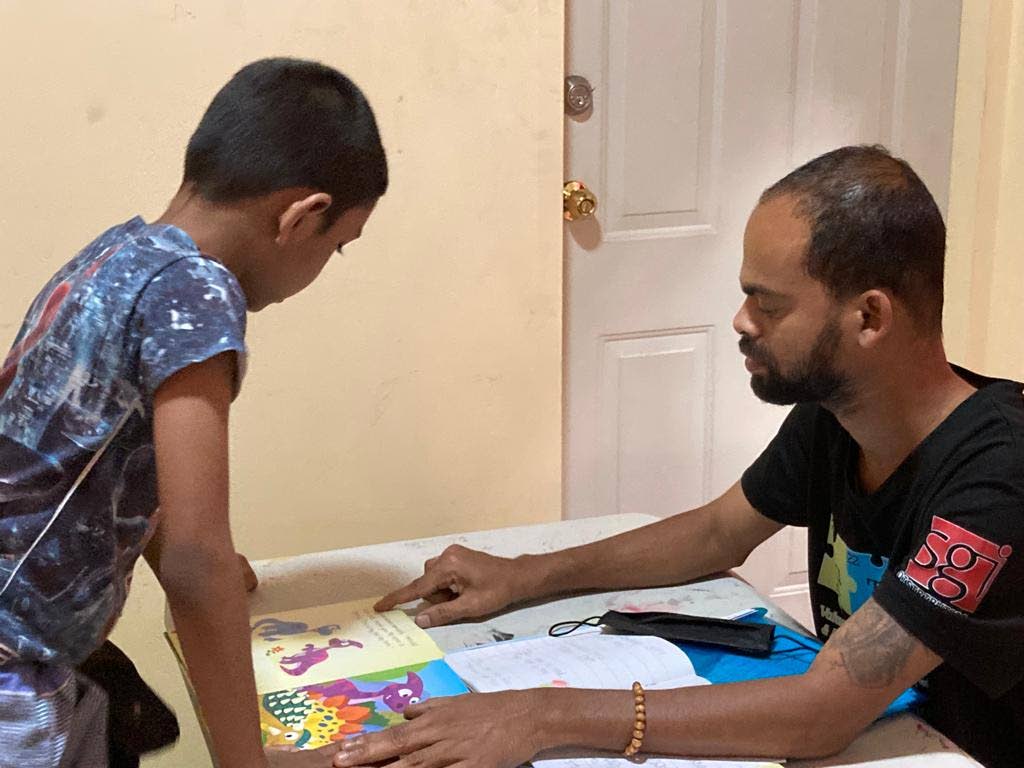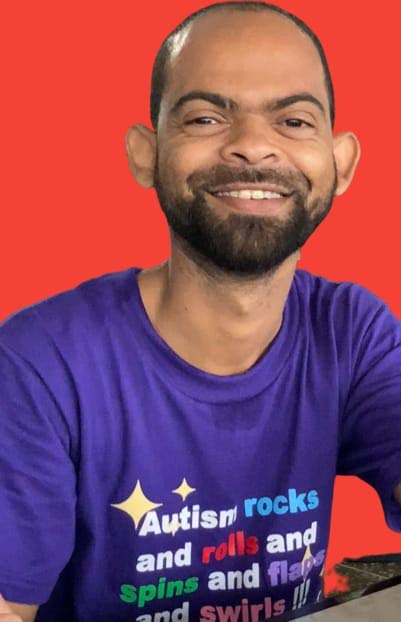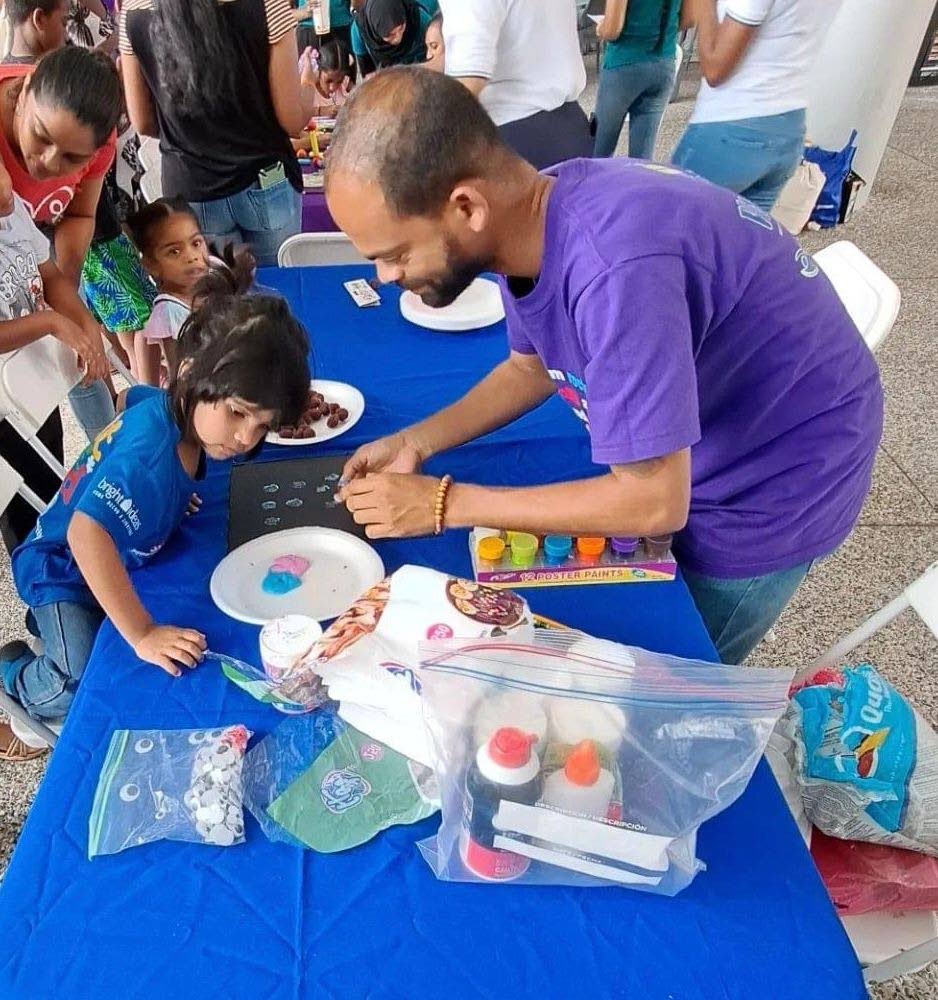'I didn't plan to teach special-needs children'

DR RADICA MAHASE
Barack Obama once said, “If you're walking down the right path and you're willing to keep walking, eventually you'll make progress.”
When I read these words, I thought of one young man, whom I only met this year, and his journey as a special-needs educator. This week I am sharing his story, in his own words.
“My name is Dennison Ravello. I am a special-needs educator working as a teacher at the Thorpe’s Academy, Home Schooling Centre, and as a facilitator at Rahul’s Clubhouse autism centre in Marabella.
"I am currently pursuing a master of education degree at UWI, with a specialisation in inclusive and special education.
"I enjoy the simpler things in life – sports, movies and most of all my job.
"There is this quote that I had always heard, 'Once you love what you do, you never work a day in your life.' To me, its meaning is simple: when you have a passion for something – well, in this case a job – it switches from just a job to a lifestyle, since it becomes a hobby, a passion, a desire to do your best at it and give it your all and most importantly, settle for nothing less than greatness.

- courtesy Rahul's Clubhouse
"Becoming a teacher was never in any of the plans for my life, much less a special-needs teacher. However, I have learnt throughout the years that it’s not your plans but God’s plans for you.
"I always wanted to become a doctor, but never had the aptitude for sciences (I was horrible at it). Thus, I decided to try my hand at psychology, thinking I can still help persons who are in need, but that did not work out either.
"As I said before, it’s not our plan but God’s plan. My journey (to) becoming a special-needs teacher all started when I was enrolled in the On-the-Job Training Programme (OJT) in 2013, and I was assigned to a primary institution as a special education resource aide.
"Education wasn’t my area of study, but when I was assigned to this area, I saw the beauty of teaching and the beauty of nurturing young minds. I saw an opportunity to learn from various colleagues, and to assist in creating a bright and creative future generation.
"One of the most important lessons I learnt throughout my time at OJT is that all children can learn – it may not be smooth sailing for all, as each person learn things differently and at their own pace. However, it doesn’t matter your ethnicity, the school you attend, your socio-economic status or most importantly your disability (physical or mental): every child can learn!
"Children who are diagnosed with one form of disability or the other are very amazing and they teach you a lot of things, especially to be grateful for everything in life.
"Most of all, no matter what life throws at you, keep going, and let nothing keep you from being the person you are destined to be.
"After the OJT programme had concluded, I began searching for jobs as a primary schoolteacher at various private institutions, I even started as a kindergarten teacher and moved up to teaching different grade levels.
"All this time I was mainly focusing on teaching children with special needs, as this was my main interest, and it just happened that most of the classes I taught had kids with special needs, so everything worked out just fine.

Photo Courtesy - C3 Centre - Courtesy - C3 Centre
"As time went by, I realised that there are more things to learn, and to continue this journey I decided to enrol in the master of education to be qualified to not only transfer my knowledge, but to use various teaching styles and strategies to bring out the best in my students and to become a positive role model for the future generation.
"As I mentioned above, teaching students with special needs is amazing, and these students – the way that they think, their creativity and their approach to solving problems are mind-blowing.
"These kids make you love everything about teaching. The fulfilment you get as a teacher, to know that you have made a difference in a child’s life, no matter how small it may be, that is a feeling which words cannot explain.
"Every day there is a feeling of accomplishment and also excitement. Knowing that these children look forward to learning brings a smile to my face when I get to work. No matter what you may be going through, they bring happiness on even the hardest day.
"Many people may think that the students learn from their teacher only. However, this is not the case – it can be reciprocal, and the teacher also learns from the students.
"As a special educator, I can say from experience that they can teach you to see the world through their eyes and think how they are thinking. When you see the world through their eyes, you will understand them better, and understanding them better will help you to implement strategies to guide them through their lessons. You will also become aware of their strengths and weaknesses, which you can work on with them.
"I want to bring awareness to the public about students with special needs, to implement strategies for both parents and students and to advocate for laws to protect these children.
"I have a plea to the Government: revise the curriculum or create a new one which caters for students with special education needs.
"As teachers, we have to modify the current the curriculum to meet the needs of these children ourselves, and this only increases the already heavy workload of a special-education teacher.
"I want the Government to create an affordable programme which will assist these students to get the help that they deserve, which will provide intervention services such as speech and language therapy, occupational and behavioural therapy, so that they can reach their full potential in life.
"I have worked with students with various special-education needs, but most of my students are diagnosed with autism spectrum disorder. Although it has been considered as low incidence, we can see the rise in cases throughout the years, and autism is one of the most common special needs today.
"Teachers are faced with many challenges, but we must embrace these challenges and deal with them head on. We have to be patient and do our utmost best to understand our students with special needs.
"I encourage other teachers to use different strategies that will benefit both you and them, see the world through their eyes, because their minds are beyond amazing, and they will always bring a smile to your face.”
Radica Mahase is the founder/director of Support Autism T&T


Comments
"‘I didn’t plan to teach special-needs children’"